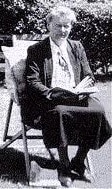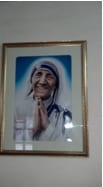
As a homeopathic consultant for many years, I find the inspiration of the homeopaths before me to be of encouragement and worthy of emulation.
Besides Mother Teresa, I look to Dr. Dorothy Shepherd as a beacon of light in our world of interest-group medicine and symptom-masking drugs.
Dr. Shepherd, my posthumous mentor, was an English medical doctor practicing in hospital clinics and emergency rooms after WWI. She used the conventional methods learned in medical school, hospitals and clinics.
Then, as luck would have it, she learned of homeopathy via the veterinarians and homeopathic physicians abounding in England at the time. So, she returned to medical school. This time it was a homeopathic medical school she attended.
After putting her full attention into the study of this vast body of medical literature, she slowly began incorporating it into her daily practice in the emergency room and clinic where she worked.
As WWII rolled around, and trauma became a customary fair, she depended on her new medicine entirely.
Once Dr. Shepherd advanced to using homeopathy full time, she never reverted to the “ways of old” again. Having a full staff at her call, she made sure they knew homeopathic protocols for all emergencies, including pre- and post-operative procedures.
Her conventional antiseptics were replaced with Calendula; her protocol for broken bones was to administer Arnica, then set the bone.
Conventional analgesics that carried side effects were replaced by Hypericum, Arnica and Ledum. Fever cases were given Belladonna, psychological trauma was treated with Aconite and Gelsemium.
And her caseload wasn’t light.
London and the surrounding areas where she practiced were under frequent bombings, so her experience was like working in a MASH unit, only with ill-prepared civilians as her assistants.
Her work was one of diligence and commitment to her patients and dedication to the calling of homeopathy.
And indeed, it was a calling of stature. Her writings are documented evidence against the tide of conventional modern medicine. In her books, she retraces her experience of moving away from drug-laden medicine to homeopathy.
Here is a woman thoroughly trained in the ways of her professors and colleagues, who found her tools frustrating and causing more harm than good.
Before her transformation towards a more rational medicine, she found her clinic a source of frustration and ill-equipped for the sheer numbers of civilians who flooded her doors.
And so, she found a solution in homeopathy.
Like Mother Teresa, Dr. Shepherd was a stalwart among her colleagues. She had inner strength, a probing mind and a heart attuned to the good of humanity. 
I hail the works of both of these women among those with the courage to stand against the forces of cartel medicine.
They are to be imitated as they are the carriers of the good name of homeopathy and the promoters of the well-being of all those around them.



I am going to go look up more information about this strong woman! Thanks!
It’s wonderful to see examples of homeopathy being used to great effect under such traumatic and intense circumstances. Obviously she wouldn’t have dedicated herself to a medicine that couldn’t do the job.
I know this isn’t the right spot, but I signed up to access articles, but am never emailed a password, not even to junk. How do I get this?
the password email will come from wordpress not joettecalabrese.com. i know that when i try it, it always get sent to my spam folder (gmail).
Thanks for sharing this inspirational and important information.
On reading Dr. Shepherd’s writings one feels whether she is a daughter of Minerva (the Goddess of wisdom) in medical field.
I have a question, and I apologize that it doesn’t really have to do with this article… But it’s about taking cell salts. I have your cell salts cd and there are a few different cell salts that I think I should try taking daily to see if they can help with some issues I have, but I’m wondering how exactly to take them. It seems like three times a day is what you suggest with most of the remedies (for constitutional care), but can I take multiple cell salts all at once three times a day? I know you say its better to alternate them, but that would basically be taking cell salts all day long every hour… So would it be efficacious to dissolve a few remedies all together in a glass of water three times a day, if I want to try taking them for a couple of months? Thanks!
lots of folks mix a number of cell salts together in 3-4 ounces of water and take a sip of aobut a teaspoon as their dose. i used this method for my family when they were growing up and found it to be convenient and efficacious.
Sorry, I just finally saw this response – so I’ve been mixing them together in about 4 ounces of water and drinking the whole thing – I should only be drinking a teaspoon of it, though? I put 4 tablets of each cell salt I’m taking into my glass – wouldn’t I not be getting the whole dose if I only drank a sip of it? Thanks!
I have been wondering about this as well. I have even emailed you about it but have not received a response. If we only take a sip or a teaspoon, does that mean that the 3 – 4oz would last a few days. That is if we take 3 sips throughout the day. Or do we finish it in one day? Sorry, but I am confused.
Thanks so much! Love your articles.
Shepherd’s published work:
Homeopathy for the 1st Aider. (1945)
Magic of the Minimum Dose. (1937)
More Magic of the Minimum Dose. (1949)
Physician’s Posy. (1951)
Homoeopathy in Epidemic Diseases. (posthumous 1967)
FYI
A wonderful book by Anne Taylor Kirschmann
“A Vital Force – Women in American Homeopathy”
Rutgers University Press, 2004
Hi… Thanks for these great details… Homeopathy really works..
Mrs. Calabrese,
I am devouring Dr. Dorothy Shepherd’s books and am wondering, when she refers to remedies in a 6 or 30, do you suppose she means x or c?
Thank you for introducing me to her awhile back. Her writings are wonderful.
Use what’s available.
Thank you very much Mrs. Calabrese. I will do that for whichever remedies I already have.
May I ask, do you have a preference for one or the other? I am placing an order for some of the remedies she wrote about and therefore have the choice of buying x or c. Perhaps you have a preference specific to each remedy, but not a blanket statement available. Should I just pick at random?
Many thanks to you once again.
It would be most prudent to order a kit of homeopathic medicines. Most of them in the US are c potency. Should you be interested, we sell kits through my office.
Thank you again Mrs. Calabrese.
I already own & treasure kits such as the fine ones you sell. There are a handful of remedies in her books which are not in these kits, and I will be purchasing those specific ones to round out my collection.
I believe I will go for the c potency with those extra remedies. Thank you for helping to point me in the right direction. Many blessings to you.